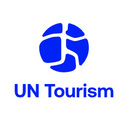Sustainability, new platform tourism services and Silk Road focus of UNWTO activities at ITB 2017
UNWTO activities at the 51th edition of ITB, taking place next 8-12 March in Berlin, include the 7thUNWTO Silk Road Ministers Meeting, events on the New Platform Tourism Services (or the so- called sharing economy), Child Protection and Indigenous Tourism.
Expected to gather around 20 Ministers of Tourism, the Silk Road Ministerial Meeting (8 March) will address the contribution of tourism to Sustainable Tourism and Local Communities.
On the 9th March, UNWTO will debate the New Platform Tourism Services (or the so-called sharing economy) with a focus on how it impacts on destinations and how are destinations addressing these new services.
In addition, also on the 9th March, UNWTO organizes the 32nd Meeting of the World Tourism Network on Child Protection and a Panel on Indigenous Tourism, underlining the relevance of inclusive practices to approach local communities in order to achieve a more sustainable tourism sector.
The World Tourism Network on Child Protection serves as a platform for tourism stakeholders to exchange good practices and discuss the most pressing challenges in curbing child and youth exploitation in the tourism sector, including sexual exploitation, child labor and trafficking. The Network draws together governments, the tourism industry, international organizations, non-governmental organizations and media associations.
"ITB is always vibrant and interesting, but this year it acquires a higher relevance as we are celebrating the International Year of Sustainable Tourism for Development 2017 and this highly prominent fair provides one of the best platform to advocate responsible tourism worldwide," said UNWTO Secretary General, Taleb Rifai.
About UN Tourism
The World Tourism Organization (UN Tourism) is the United Nations agency responsible for the promotion of responsible, sustainable and universally accessible tourism.
As the leading international organization in the field of tourism, UN Tourism promotes tourism as a driver of economic growth, inclusive development and environmental sustainability and offers leadership and support to the sector in advancing knowledge and tourism policies worldwide.
Our Priorities
Mainstreaming tourism in the global agenda: Advocating the value of tourism as a driver of socio-economic growth and development, its inclusion as a priority in national and international policies and the need to create a level playing field for the sector to develop and prosper.
Promoting sustainable tourism development: Supporting sustainable tourism policies and practices: policies which make optimal use of environmental resources, respect the socio-cultural authenticity of host communities and provide socio-economic benefits for all.
Fostering knowledge, education and capacity building: Supporting countries to assess and address their needs in education and training, as well as providing networks for knowledge creation and exchange.
Improving tourism competitiveness: Improving UN Tourism Members' competitiveness through knowledge creation and exchange, human resources development and the promotion of excellence in areas such as policy planning, statistics and market trends, sustainable tourism development, marketing and promotion, product development and risk and crisis management.
Advancing tourism's contribution to poverty reduction and development: Maximizing the contribution of tourism to poverty reduction and achieving the SDGs by making tourism work as a tool for development and promoting the inclusion of tourism in the development agenda.
Building partnerships: Engaging with the private sector, regional and local tourism organizations, academia and research institutions, civil society and the UN system to build a more sustainable, responsible and competitive tourism sector.
Our Structure
Members: An intergovernmental organization, UN Tourism has 160 Member States, 6 Associate Members, 2 Observers and over 500 Affiliate Members.
Organs: The General Assembly is the supreme organ of the Organization. The Executive Council take all measures, in consultation with the Secretary-General, for the implementation of the decisions and recommendations of the General Assembly and reports to the Assembly.
Secretariat: UN Tourism headquarters are based in Madrid, Spain. The Secretariat is led by the Secretary-General and organized into departments covering issues such as sustainability, education, tourism trends and marketing, sustainable development, statistics and the Tourism Satellite Account (TSA), destination management, ethics and risk and crisis management. The Technical Cooperation and Silk Road Department carries out development projects in over 100 countries worldwide, while the Regional Departments for Africa, the Americas, Asia and the Pacific, Europe and the Middle East serve as the link between UN Tourism and its 160 Member States. The Affiliate Members Department represents UN Tourism's 500 plus Affiliate members.
Rut Gómez Sobrino
Principal Media Officer
(+34) 91 567 81 60
UN Tourism
